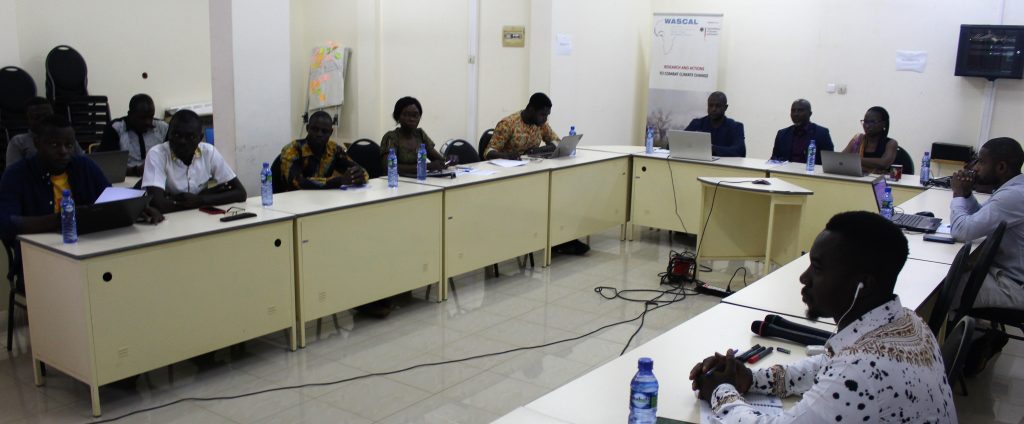
A two-day workshop to present results of the research project to identify the impacts of climate change and adaptation cost on agriculture, water sector and coastal zones in West Africa by ECOWAS in partnership with WASCAL has been held at WASCAL’s Competence Centre in Ouagadougou, Burkina Faso. The first day of the workshop was dedicated to West African anglophone countries, and the second day, for the francophone countries.
The workshop was also designed to garner outputs of the study and collate stakeholders’ comments and recommendations for future perspectives in connection with impacts, vulnerability, and adaptation assessments in West Africa.
This study aligns with the vision of ECOWAS strategic programme on the reduction of vulnerability and cost of adaptation to climate change stated as follows: “by the end of 2030, all countries of West Africa will (or expected to) have the human, technical and financial resources necessary to protect their human and natural systems from the adverse effects of climate change”.
The workshop was jointly presided over by Dr. Moumini Savadogo, Executive Director of WASCAL and Mr. Leko Moussa, the Acting Director of Environment and Natural Resources, representing ECOWAS.
In his welcome address, Dr. Moumini Savadogo expressed his sincere gratitude to the Acting Director of Environment and Natural Resources of ECOWAS and all his team for the collaboration and partnership with ECOWAS, their leadership and foresight in choosing the theme for this study, and used the opportunity to convey his sincere thanks to the President of the ECOWAS Commission and to the Commissioner for Environment, Agriculture and Water Resources.
He emphasized that the theme of the workshop was extremely important and critical for improved livelihoods in the sub-region. It was to also identify much more precise impacts and opportunities related to Climate Change on the socio-ecological systems within ECOWAS member countries. He further reiterated that beyond identifying these impacts and opportunities, its developing strategies and consequent investment plans for adaptation with a view to boosting climate action at local, national, and sub-regional levels was very crucial.
Mr. Leko Moussa reciprocally expressed his delight to WASCAL for the fruitful collaboration with WASCAL. He was confident that that the contribution of all the participants will help improve the content of the report for a robust strategic approach to climate change adaptation and mitigation in the region.
The workshop was attended by representatives of Ministries in charge of Environment and Climate Change, Agriculture, Water Resources, Meteorological Agencies in the sub-region, international organizations, and NGOs, with key discussions cutting across bias correction, data collection, uncertainty, artificial groundwater recharge in West Africa.

